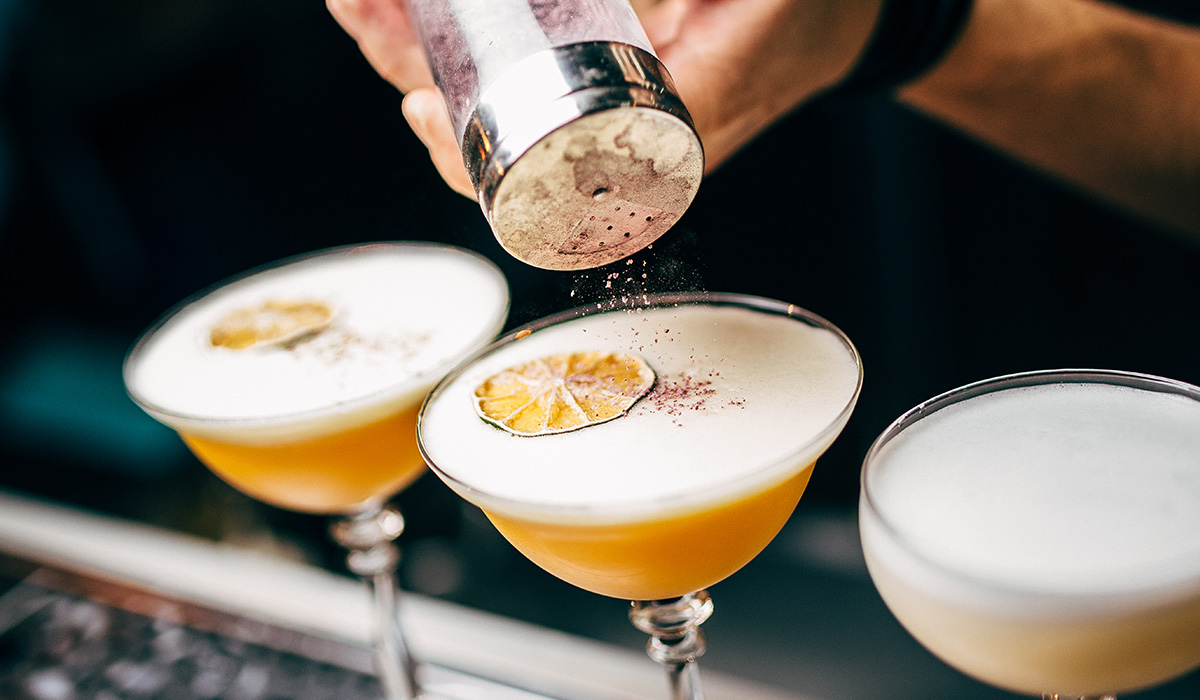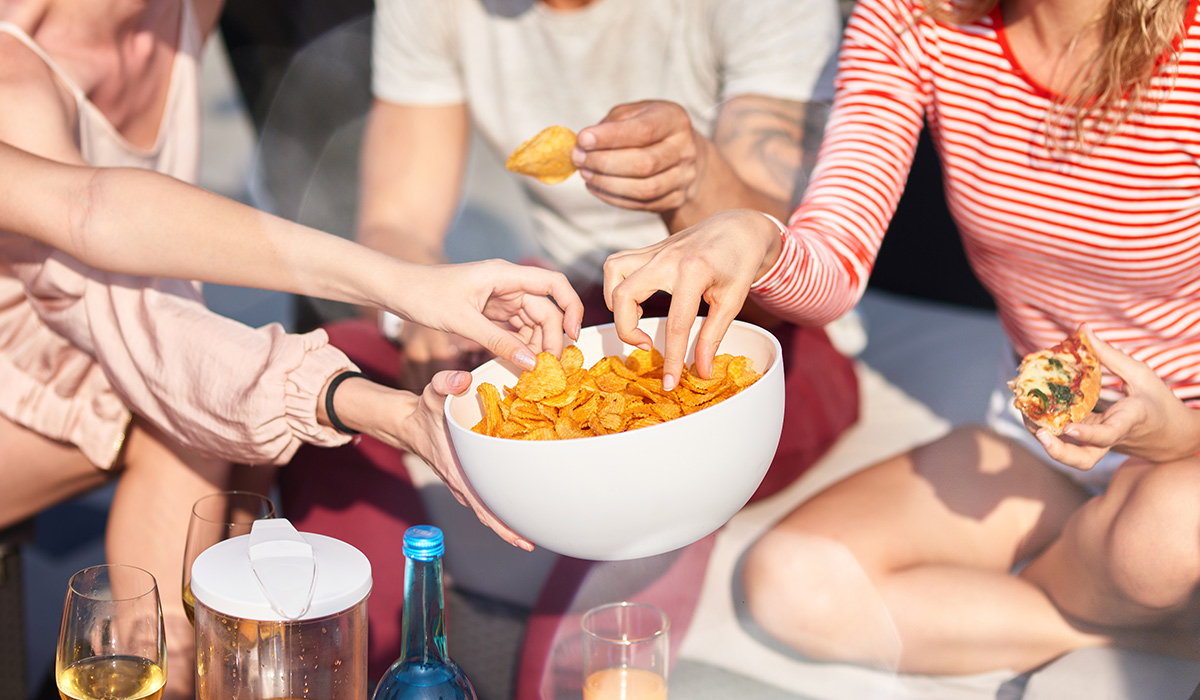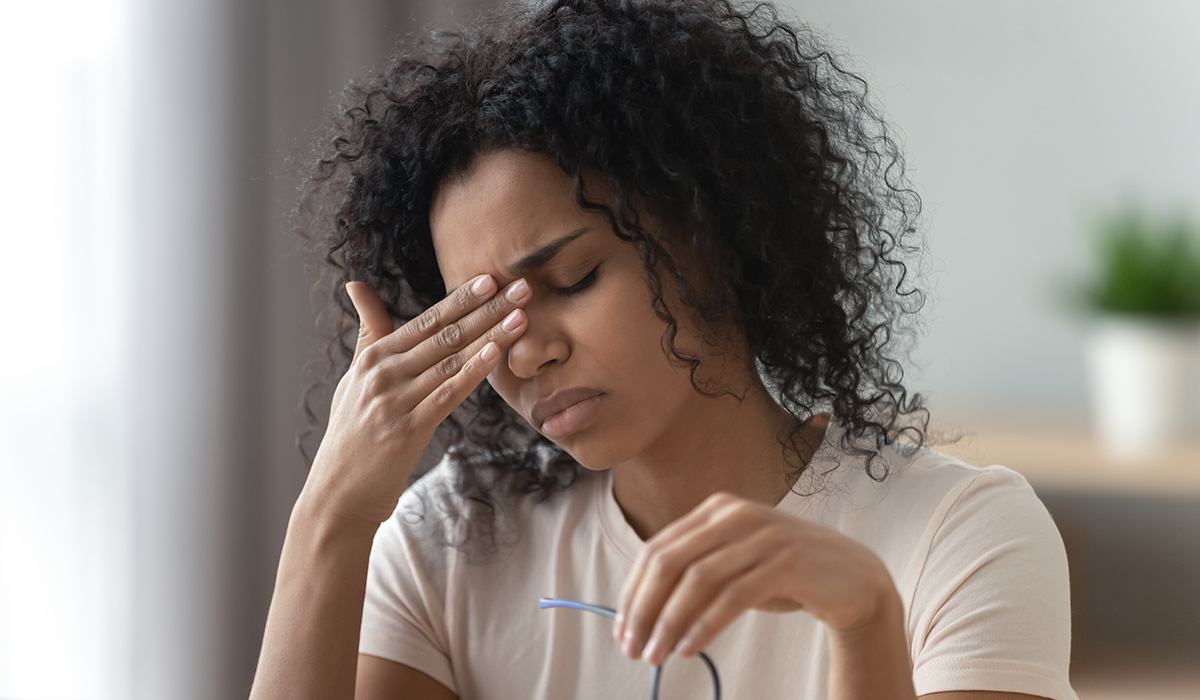Can you drink alcohol AND still lose weight?
Amy Wood - Nutritionist | 04 Jun, 2023
Most of us know well enough that drinking too much alcohol isn't the best for our health, having been linked with liver and heart problems. Booze can also have a significant impact on our weight, and not just in the way you might think. Here are 6 surprising ways your favourite tipple might be hindering you from reaching your goals.

It's 'empty' calories
Gram for gram, alcohol provides us with around 7 calories. That's second only after fat (9 calories per gram), and twice as many calories as protein and carbs (both 4 calories per gram). Now there are lots of sources of fat that also provide us with nourishment. Take olive oil for example – higher in calories, but the unsaturated fats supply our body with essential fatty acids and play a role in keeping our hearts healthy. When it comes to alcohol, our bodies don't receive any nourishment or health benefits (rather the opposite in fact!), so the energy it provides us is 'empty'. If it weren't for the taste or the potential social aspects, alcohol would probably be a waste of calories!

It's often accompanied by sugary extras
When we refer to 'alcohol', we actually mean ethanol, which is the specific type of alcohol molecule we drink. Now we don't actually drink pure neat ethanol as it would probably kill us – even the strongest spirits top at around 40% ABV, that is, 40% of the liquid is ethanol. Usually, we consume alcohol in the form of beer, cider, wine, cocktails, or spirits with mixers. All of these drinks are more complex than alcohol, containing other ingredients to add flavours and make the ethanol taste nice, plus significant amounts of another nutrient we should be mindful of: sugar. With all the tasty extras, many of our favourite cocktail concoctions come with a hefty amount of sugar. Even a pint of market-leading fruity cider might only be 4% ABV, so could be deemed a less intense choice on the alcohol front, but actually clocks in at 25.6g sugar – the equivalent of over 5 teaspoons!

It messes with your sleep
Alcohol is a 'depressant', which means it makes us feel sleepy. You'll often find a drink in the evening makes you fall asleep quicker, leading many to believe it helps them sleep. But according to research, this couldn't be further from the truth.
A Finnish twin study revealed that any amount of alcohol consumption before bedtime negatively impacts sleep quality. Specifically, low amounts of alcohol decreased sleep quality by over 9%, moderate amounts by nearly 25%, and high amounts by almost 40%. It's likely you've woken up after one too many glasses of wine feeling groggy and poorly rested, but even if you don't take things overboard, just one glass can have a significant impact on the quality of your kip.
Now here's the link with weight loss – we know poor-quality sleep can have an impact on our hormones, specifically leptin and ghrelin, the ones that control appetite. A lack of proper rest may increase ghrelin levels (the hormone that tells us we're hungry), while decreasing levels of leptin (the hormone that tells us we're full). On top of this, the lack of energy caused by poor sleep can lead to increased cravings for sugar to give us a quick boost, so unnecessary snacks may creep in. When we're tired, we feel less motivated to cook a healthy meal, reaching for something convenient instead. We're more likely to skip our exercise plans too. It's a perfect storm for going over our calorie target.

It affects your judgement
Ah, the infamous "I'll just have one!". Said all too many times, and as one leads to two, and two to several more. For many of us, we head into a social event with good intentions, but it can be hard to stop at one drink once we start, not helped by the fact that alcohol weakens our resolve! More drinks = more calories, which could be taking you out of your deficit and undoing all your hard work.
And the "Oh, why not?" mentality doesn't stop at drinking. Once the booze is flowing, we're more likely to reach for the bowl of crisps at the table, say yes to the offer of extra snacks, or feel the urge to pick up a kebab at the end of the night on the way home.

It dehydrates your body
Dry mouth, pounding headache and lethargy. All common symptoms of too much alcohol. All these side effects are caused by a lack of water in the body.
Ultimately, alcohol is a toxin, so once we drink it, our liver drops everything and sets to work breaking it down and removing it from the bloodstream. The waste products of this process need to go somewhere, so they're passed out through our urine. Alcohol is a diuretic, so this might explain why you find yourself off to the toilet more frequently than usual when drinking. More visits to the loo means we're losing more water, so it's extra important to hydrate with water and non-alcoholic drinks before, throughout the evening, and afterwards.
Our brains sometimes have trouble distinguishing between thirst and hunger, often confusing the need for a drink with a desire to eat. Mild dehydration is easily perceived to be hunger, meaning we reach for extra snacks when really, we just need fluids.

It causes hangover cravings
It's important to remember not just the effects of alcohol while we're drinking it, but the impact the day after. Hangovers are never a great feeling, and when the painkillers and electrolytes just won't cut it, we turn to another common source of comfort: food.
Typically, the foods we crave are less than nutritious choices, but there's actually some science behind this! Galanin, a neurotransmitter in the brain, is released in higher concentrations when we drink alcohol. Galanin has shown to increase cravings for dietary fat, which subsequently also promotes further release of galanin, and the cycle leads to overconsumption. Worth a thought the next time you fancy drinking – those hankerings for a greasy takeaway are bound to strike.
Remember the Nutracheck mantra – it's about balance!
We are huge advocates of a balanced lifestyle with everything in moderation, especially when you're on your weight loss journey. If you prefer not to drink at all, that's great and a healthy choice! If you enjoy a tipple or two, that's fine, just make sure you're mindful of how much you're drinking.
You can use the Nutracheck app to keep an eye on your intake. Monitor units or calories with the handy alcohol tracker. To add this to your diary, open the app, tap the blue menu button next to the search bar in your diary > Diary Preferences > Diary Trackers. Select the alcohol tracker of your choice (you could even choose both!).

Nutritionist Amy Wood (ANutr), MSci BSc Nutrition has a keen interest in the relationship between diet and health. Having been published in the European Journal of Nutrition, Amy is passionate about making evidence-based nutrition accessible to everyone and helping others to adopt a food-focused approach to taking control of their health.











